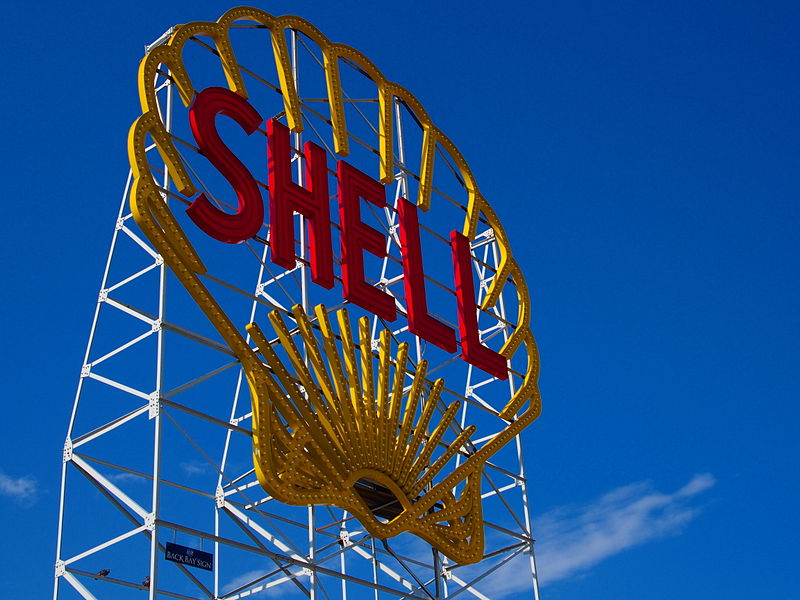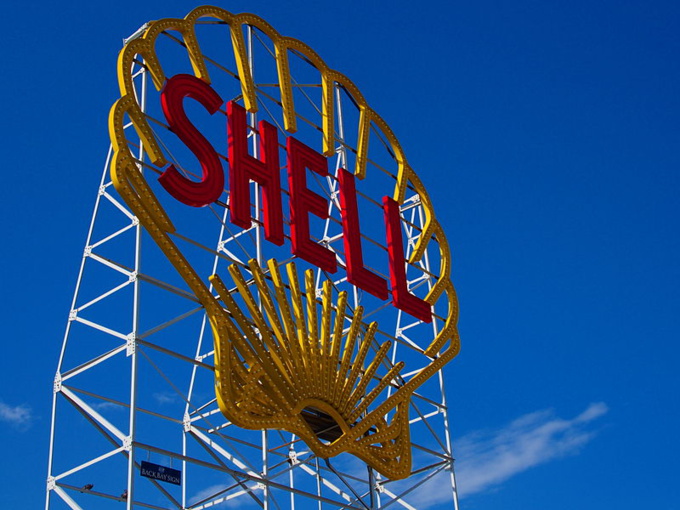The deal gives Saudi Arabia exclusive control over the largest US refinery with a capacity of 600 thousand barrels per day in Port Arthur, Texas. The State Oil Company of Saudi Arabia, known as Saudi Aramco, will receive all rights to name and entity of Motiva Enterprises LLC. Saudi Arabia will also own 24 distribution terminals, according to Aramco and Shell’s joint statement.
Shell will own Norco and Convent refineries in Louisiana, as well as 11 distribution terminals. Motiva's net debt of $ 3.2 billion is the key part of the deal.
Shell’s separate statement says Saudi Aramco agreed to take on all of the debt, including Shell's stake of $ 1.5 billion, and make cash payments, bringing the total amount paid to Shell to $ 2.2 billion.
It is expected that the transaction, which is subject to regulatory approval, will be completed in the second quarter of 2017.
Harold Hamm, executive director and founder of oil concern Continental Resources and energy adviser to President Donald Trump, spoke out against foreign takeovers at US refineries. Trump himself expressed dissatisfaction with the US dependence on foreign control over fuel production.
The deal closes the two-year partnership period between Shell and Aramco in the United States. In 2012, two companies spent $ 10 billion to double the plant in Port Arthur, making it the largest refinery in the United States. A significant part of the gasoline, diesel fuel and aviation fuel produced at the plant is exported to foreign markets.
Saudi Aramco’s crude oil reserves are estimated at 265 billion barrels in total. Aramco deposits, according to some estimates, contain 15% of the world's oil reserves.
In the light of the upcoming IPO, the company entrusted Gaffney, Cline and Associates, a division of Baker Hughes oilfield services firm, with a task to inspect the reserves, three sources told to Reuters.
Two more sources reported that Aramco also approached Dallas company DeGolyer and MacNaughton, which is one of the oldest in the field of audit stocks.
According to industry sources, government of Saudi Arabia owns the reserves, while Aramco is likely to have a concession. This means that the company has direct access to these resources with exclusive rights to exploration and production.
The main question is how much oil will be reflected in Aramco’s financial statements after the independent audit taking into account the concession, sources say.
Last week, Bloomberg reported that Saudi Arabia would cut oil prices for northwestern Europe by 45-60 cents a barrel, for the US - by 10-30 cents. New prices are valid for deliveries starting from April. Sales will be made at the price of regional benchmarks. Saudi Arabia will also reduce price of a light oil grade for the Mediterranean countries by more than 40 cents per barrel, but heavy grade will rise in price by 15 cents compared to March supplies.
Earlier, Saudi Arabia raised oil prices for buyers from the US, Europe and Asia for supplies, starting in March. The price for light oil for Asian customers increased by 30 cents.
source: bloomberg.com, reuters.com
Shell will own Norco and Convent refineries in Louisiana, as well as 11 distribution terminals. Motiva's net debt of $ 3.2 billion is the key part of the deal.
Shell’s separate statement says Saudi Aramco agreed to take on all of the debt, including Shell's stake of $ 1.5 billion, and make cash payments, bringing the total amount paid to Shell to $ 2.2 billion.
It is expected that the transaction, which is subject to regulatory approval, will be completed in the second quarter of 2017.
Harold Hamm, executive director and founder of oil concern Continental Resources and energy adviser to President Donald Trump, spoke out against foreign takeovers at US refineries. Trump himself expressed dissatisfaction with the US dependence on foreign control over fuel production.
The deal closes the two-year partnership period between Shell and Aramco in the United States. In 2012, two companies spent $ 10 billion to double the plant in Port Arthur, making it the largest refinery in the United States. A significant part of the gasoline, diesel fuel and aviation fuel produced at the plant is exported to foreign markets.
Saudi Aramco’s crude oil reserves are estimated at 265 billion barrels in total. Aramco deposits, according to some estimates, contain 15% of the world's oil reserves.
In the light of the upcoming IPO, the company entrusted Gaffney, Cline and Associates, a division of Baker Hughes oilfield services firm, with a task to inspect the reserves, three sources told to Reuters.
Two more sources reported that Aramco also approached Dallas company DeGolyer and MacNaughton, which is one of the oldest in the field of audit stocks.
According to industry sources, government of Saudi Arabia owns the reserves, while Aramco is likely to have a concession. This means that the company has direct access to these resources with exclusive rights to exploration and production.
The main question is how much oil will be reflected in Aramco’s financial statements after the independent audit taking into account the concession, sources say.
Last week, Bloomberg reported that Saudi Arabia would cut oil prices for northwestern Europe by 45-60 cents a barrel, for the US - by 10-30 cents. New prices are valid for deliveries starting from April. Sales will be made at the price of regional benchmarks. Saudi Arabia will also reduce price of a light oil grade for the Mediterranean countries by more than 40 cents per barrel, but heavy grade will rise in price by 15 cents compared to March supplies.
Earlier, Saudi Arabia raised oil prices for buyers from the US, Europe and Asia for supplies, starting in March. The price for light oil for Asian customers increased by 30 cents.
source: bloomberg.com, reuters.com



















